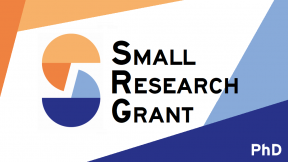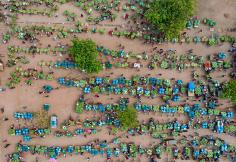There is a growing concern that natural resource abundance can hinder economic development. This is because, despite the large fiscal revenues that the export of natural resources can create, it is often observed that resource- rich countries experience lower economic outcomes. One of the most common causes of this paradox is high dependence on the export of resources or lack of economic diversification. Most resource-rich countries tend to have an over-reliance on the fiscal revenue generated from commodity export without exploiting other channels through which the extractive sector can stimulate economic growth.
Extractive sectors create several linkage opportunities during their operations. Their upstream and midstream operations involve a high demand for inputs from other sectors. Their downstream operations involve the production of goods that are used by other sectors as inputs. By promoting competitiveness and efficiency in the local market, linkages created by the extractive sectors serve as potential channels to upgrade domestic firms, transfer skills, boost productivity and promote local job creation. Countries may be able to take advantage of these linkages to promote economic diversification. In 2007, Ghana discovered its most significant column of high-grade offshore oil. This research seeks to explore forward and backward linkages as a mechanism through which the oil and gas exploration drives structural transformation and economic growth. The research questions that this project seeks to answer are: i) What is the effect of the oil and gas discovery on economic outcomes? ii) What is the effect of the oil and gas discovery on the structure of the economy?
In this paper, the author uses data from the Ghana living standard Survey (GLSS), Ghana Population censuses, the Global Trade Analysis Project (GTAP) and the World Bank Enterprise survey. The GLSS dataset provides household level data for 2006, 2013 and 2017. The World Bank Enterprise Survey dataset provides firm level data for 2007 and 2013. The Ghana populations censuses has district level data for 2000, 2010 and 2021. The GTAP dataset has input-output tables for Ghana for 2004 and 2007. The methodology that the author will use is a difference in differences analysis where the treatment is the oil discovery in 2007. The treatment group consists of households and firms in districts where industries with a high degree of dependence on the oil sector are located. The control group includes households in districts where industries without any connection to the oil sector are located. This methodology will exploit variations in industrial composition and location and compare households and firms in treatment and control groups before and after the oil was discovered.
This research contributes to an emerging literature on how to promote diversification in resource rich economies and the optimization of linkages created by the extractive sector. Findings from this research will improve the understanding of the mechanisms through which natural resource extraction can foster economic development. The results will shed light on the challenges that resource-rich countries face in developing linkages and how they can use existing policy instruments to exploit the potential economic spill-overs that the extractive sectors can create. It will inform policymakers in the development of policies and institutions to aid resource development, improving its positive impacts and reducing poverty. These findings will be relevant not just to Ghana but to other resource-rich economies.
Project
• Research Theme 1: Firms, Frictions and Spillovers, and Industrial Policy,
Cross-Cutting Issue 1: Gender,
Cross-Cutting Issue 3: Inequality and Inclusion
Natural Resource Driven Structural Transformation and Economic Growth in Ghana: Optimising Backward and Forward Linkages
This project has been retired

PhD Research Grants
Research Team
Related content











































































































